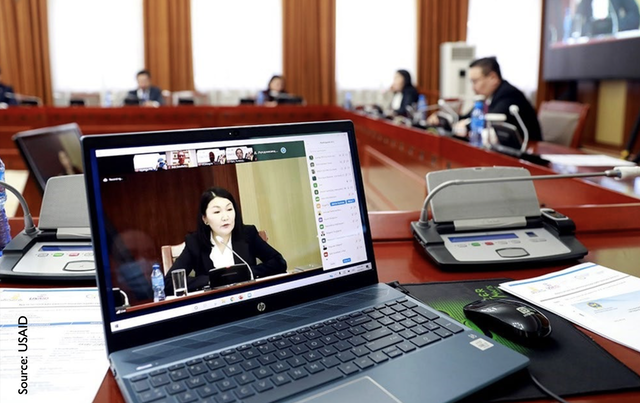
Why Governments Deploy ICT4D Projects
Governments use digital services to increase constituent services by improving efficiency, communication, accessibility, transparency, decision-making, and innovation. This strategic integration of e-Government technology helps governments enhance their operations and better serve their constituents.
Governments use e-government programs and digital services to increase constituent services for several reasons:
- Improved efficiency and productivity: E-government programs can streamline administrative processes, reduce paperwork, and save time and money, ultimately leading to more efficient and productive government operations.
- Better communication and accessibility: E-government programs facilitate better communication between governments and citizens, creating a more open market and a stronger economy. By digitizing government services and information, e-government can increase accessibility to public services and improve the overall customer experience.
- Increased transparency and accountability: E-government can improve government transparency by allowing the public to be informed about what the government is doing. This creates a more informed and engaged citizenry, which can lead to increased trust in government.
- Enhanced decision-making and resource allocation: By leveraging data and information collected through e-government programs, governments can make more informed decisions and allocate resources more effectively, resulting in better program outcomes and better support for constituents.
- Improved constituent experience: E-government programs can provide personalized experiences to constituents by collecting, unifying, and activating data to draw meaningful insights and provide proactive solutions to their needs.
- Promotion of innovation and collaboration: By utilizing e-government programs, governments can foster collaboration and promote innovation among stakeholders, leading to the development of more innovative and sustainable solutions.
USAID Mission Guidance for COVID-19 Digital Response Solutions
Information is critical to COVID-19 Digital Response. Decision makers need detailed and timely data about the coronavirus disease spread. Health workers and communities...
Russians Are Still Using Facebook to Misinform African Voters
Facebook just removed three more misinformation networks on its platforms for engaging in foreign interference of African elections, this time on behalf of Russian...
The Number One Indicator of ICT4D Project Financial Sustainability
We often talk about project sustainability in information and communication for technology (ICT4D) programs, and as a result, we have multiple guides on how to...
3 Reasons Why We Need Human Rights-Based Approach to Digital Media
Citizen engagement and participation through the use of digital media is a crucial area of work at this point in history and is now being recognized in regulatory...
Caution! Data Quantity Does NOT Equal Data Quality
Revenue administrations collect large amounts of data on individuals and firms in the course of their work. Increasingly, this data is digitised. The use of digital...
Apply Now: Paid Science & Technology Policy Fellowships in Washington DC
Are you a scientist or engineer? Do you want to learn first-hand about policymaking? To contribute your knowledge and analytical skills for better government services?...
How to Spend $800,000 on Facebook to Influence African Elections
Recently, Facebook announced it removed 265 fake Facebook and Instagram accounts, Facebook Pages, Groups and events involved in a coordinated attempt to influence...
Heads Up! USAID CIO Wants to Review All Your Technology Contracts
On March 21, 2019, USAID posted to the Federal Registry a proposed rule that would amend the USAID Acquisition Regulation (AIDAR), which is derived from the Federal...
Do You Trust Apple and Google More Than Your Government?
Lesson I: Never take candy from strangers, unless they are a multinational tech corporation
When I was younger, I was taught that the ridges and patterns found...
Who Do You Trust More With Your DNA Data: Kenya or 23andMe?
Who do you trust with your biometric data: fingerprints, retinal scans, and most of all, your DNA? Do you trust your own government? What about the government of...











